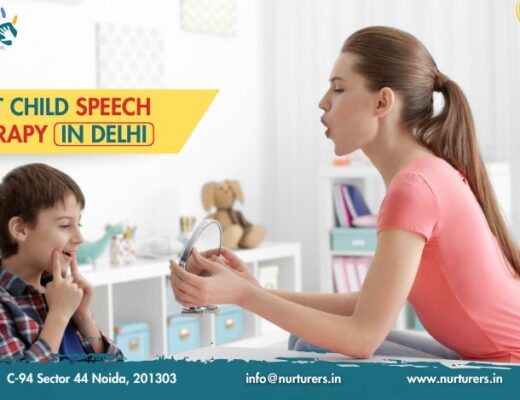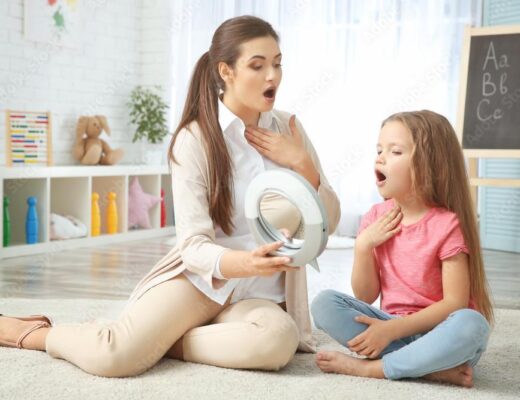What is Hearing Problems in Children?
Hearing problems in children is a condition where a child’s ability to hear is reduced, impacting their speech, language development, and overall communication skills. Early detection and intervention are crucial in managing Hard of hearing effectively, ensuring children can reach their full potential. Understanding the causes and signs of Hearing impaired can help parents seek timely treatment and support.
How Hearing problems Affects School Performance?
Hearing loss is a significant challenge that can have a profound impact on a child’s school performance. It not only affects their ability to hear sounds but also influences their speech and language development, social interactions, and overall academic success.
In this article, we will explore how Hard of hearing can affect school performance and the role of speech therapy in addressing these challenges. Whether it’s for adults or kids, Speech Therapy for Adults & Kids plays a critical role in helping individuals overcome communication barriers caused by Hearing impaired.

The Connection Between Hearing Loss and School Performance
Hard of hearing can create numerous obstacles for children in a school setting. The ability to hear clearly is essential for understanding instructions, participating in class discussions, and engaging in social interactions with peers. When a child has hearing problems, these fundamental aspects of learning can be severely compromised, leading to various academic challenges.
Difficulty in Following Instructions
Children with hearing problems often struggle to follow verbal instructions given by teachers. This can result in missed assignments, confusion about classroom activities, and a general lack of understanding of the material being taught. In cases where Hearing impaired is coupled with a voice disorder, the child may find it even more challenging to express their difficulties, further complicating their ability to keep up with their peers.
Impact on Language and Speech Development
Hearing loss can delay a child’s speech and language development, which is crucial for effective communication and learning. Children with hearing impairments may have limited vocabulary, incorrect pronunciation, and difficulty forming sentences. These speech and language issues can make it difficult for them to participate in classroom discussions, answer questions, and interact with teachers and classmates. Speech Therapy for Adults & Kids is vital in addressing these issues, helping children develop the necessary communication skills to succeed in school.
Social and Emotional Challenges
Children with Hard of hearing may feel isolated from their peers due to communication barriers. They might struggle to engage in conversations, understand jokes, or participate in group activities. This social isolation can lead to feelings of frustration, low self-esteem, and anxiety, all of which can negatively impact their academic performance. Addressing Hearing impaired and voice disorders through speech therapy can help children build confidence in their communication abilities and improve their social interactions.
Academic Performance and Learning Disabilities
Hearing problems can contribute to the development of learning disabilities, particularly in areas such as reading and writing. Children with hearing impairments may find it difficult to grasp phonics, which are essential for reading and spelling. Additionally, they may have trouble understanding complex concepts, following lessons, and retaining information, leading to lower academic achievement. Early intervention through speech therapy can help mitigate these challenges and support the child’s academic progress.
Behavioral Issues
Frustration from communication difficulties can manifest as behavioral problems in children with hearing loss. They may become withdrawn, act out in class, or display signs of attention deficit disorders. These behaviors can further hinder their ability to learn and participate in school activities. Addressing the root cause—Hard of hearingand associated speech or voice disorders—through appropriate therapeutic interventions is essential to improving both behavior and academic performance.

The Role of Speech Therapy in Addressing Hearing Loss
Speech therapy is a critical component in the treatment of Hearing impaired, especially for children who are at risk of falling behind in school. By focusing on improving communication skills, speech therapy helps children with Hard of hearing overcome the barriers that affect their learning and social interactions.
Improving Speech Clarity and Language Skills
Speech therapy also helps children develop better listening skills, which are crucial for understanding spoken language in noisy environments like classrooms. Therapists use various techniques to train children to focus on important sounds, filter out background noise, and improve their ability to follow conversations and instructions.
Enhancing Listening Skills
Speech therapy focuses on enhancing the clarity of speech and expanding vocabulary, which are often compromised due to Hearing impaired. Therapists work with children to correct pronunciation, improve sentence structure, and increase their ability to express themselves clearly. This is particularly important in a school setting, where effective communication is key to academic success.
Supporting Social Communication
For children with Hearing impaired, developing social communication skills is vital. Speech therapy addresses the social aspects of communication, such as understanding body language, facial expressions, and social cues. This helps children interact more effectively with their peers, reducing feelings of isolation and improving their overall school experience.
Addressing Voice Disorders
In some cases, Hearing impaired may be accompanied by voice disorders, which can further hinder a child’s ability to communicate. Speech therapists work on improving vocal quality, pitch, and volume, ensuring that the child can be heard and understood clearly in social and academic settings.
Customized Therapeutic Approaches
Speech therapy is highly individualized, with treatment plans tailored to the specific needs of each child. Whether addressing mild Hard of hearing or more severe cases, therapists design exercises and activities that target the areas most impacted by the child’s hearing impairment. This personalized approach ensures that therapy is effective in helping the child achieve their communication goals and perform better in school.

Conclusion
Hearing loss can have a profound impact on a child’s school performance, affecting their ability to communicate, learn, and socialize effectively. However, with the right support and intervention, these challenges can be overcome. Speech therapy for both adults and kids is essential in addressing the communication barriers caused by Hard of hearing, helping children develop the skills they need to succeed academically and socially.
If you’re looking for expert assistance in managing hearing problems and its impact on school performance, consider Speech Therapy for Adults & Kids in Noida. Consult with the best professionals in the field to ensure your child receives the support they need to thrive. With specialized Speech Therapy for Adults & Kids, you can help your child build a brighter future.

Hi! I am Swati Suri, a Special Educator with 9+ years of experience and the founder of Nurturers. I am passionate about helping children with special needs and supporting their families every step of the way.



